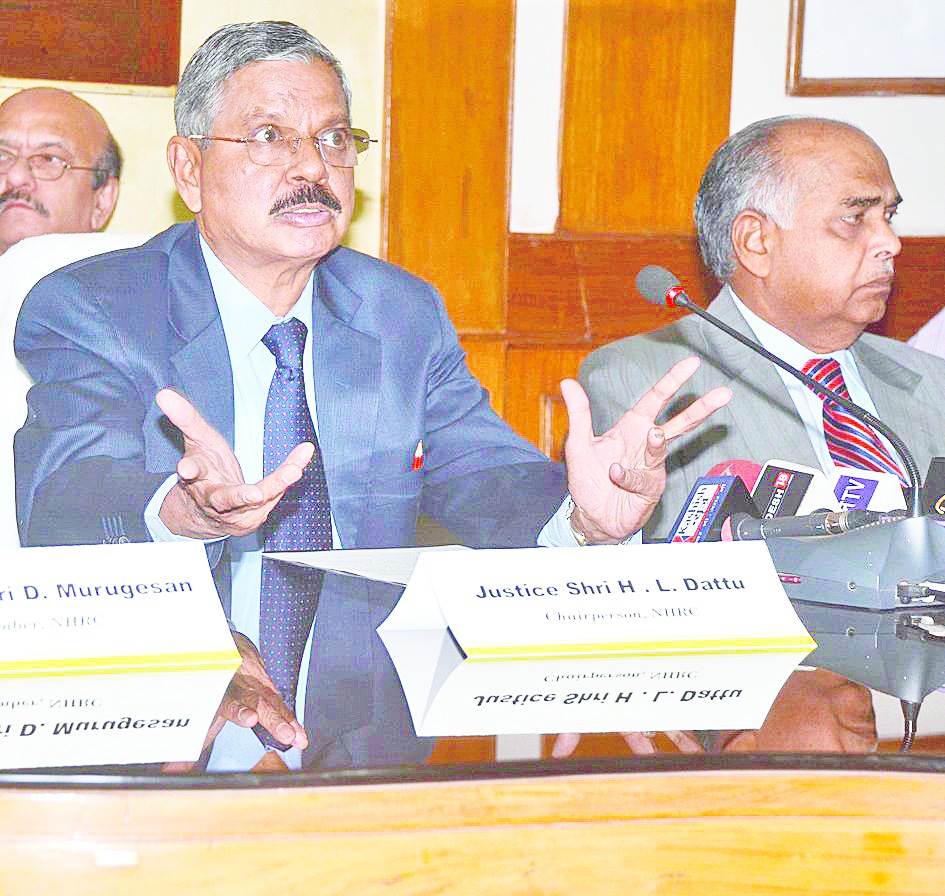
Patna, April 23: The National Human Rights Commission (NHRC) today put the state government in the dock over implementation of welfare schemes and asked it to provide safe drinking water, particularly those residing in districts facing the issue of high arsenic content in groundwater.
“Arsenic content is more than the permissible limit in four districts. We called the district magistrates, other officials and the chief secretary to ask why this was happening in these districts. We have told them that safe and good quality drinking water should be provided to the people as it is part of their human rights. The officials have assured us that all steps are being taken for this,” NHRC chairman Justice (retired) H.L. Dattu said, while meeting mediapersons here.
Dattu said the matter was taken up by the panel after reports about arsenic contamination resulting in cancer of over 100 persons, and death of many of them, came to their notice.
The problem has reached alarming proportions in Patna, Bhojpur, Buxar and Saran located along the Ganga.
The full bench of NHRC comprising Dattu, Justice (retired) Cyriac Joseph, Justice (retired) D. Murugesan and S.C. Sinha was on a three-day Bihar tour since April 21 to conduct a camp and hearing of grievances.
“We have noticed shortcomings in the implementation of Sarva Shiksha Abhiyan, mid-day meal scheme, MGNREGA, Indira Awas Yojana, public distribution system (PDS), non-functioning of health services, faulty x-ray machines, problems related to anganwadi centres and bonded labour. We pointed out the mistakes to the senior government officials and asked them to improve upon faulty implementation of the projects,” Dattu said.
Though the NHRC chairman did not elaborate on deficiencies, he added that officials have assured the panel that they would bring improvements in the implementations of the schemes and would oversee rescue, rehabilitation and crackdown on bonded labour.
“The NHRC is concerned about sub-optimality in the institutions and schemes such as education, PDS, MGNREGA and health, and will share the inquiry reports with the state to have meaningful intervention to improve their implementation,” Dattu added.










